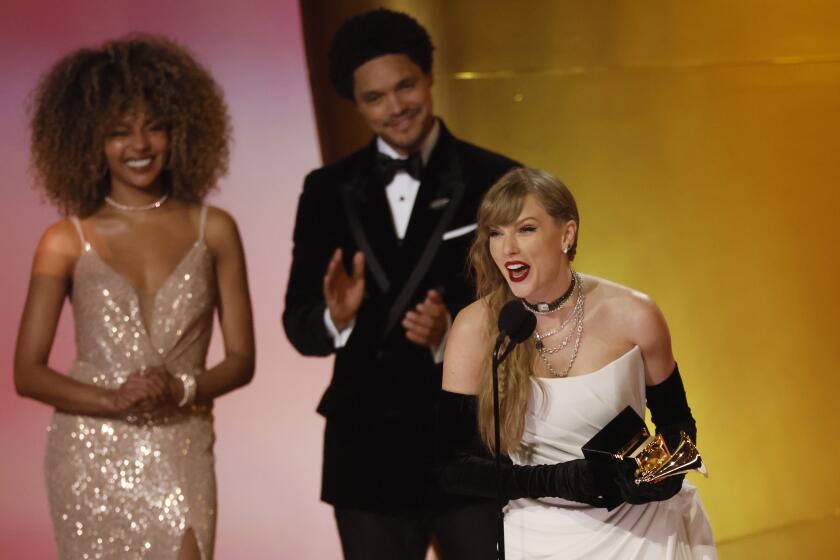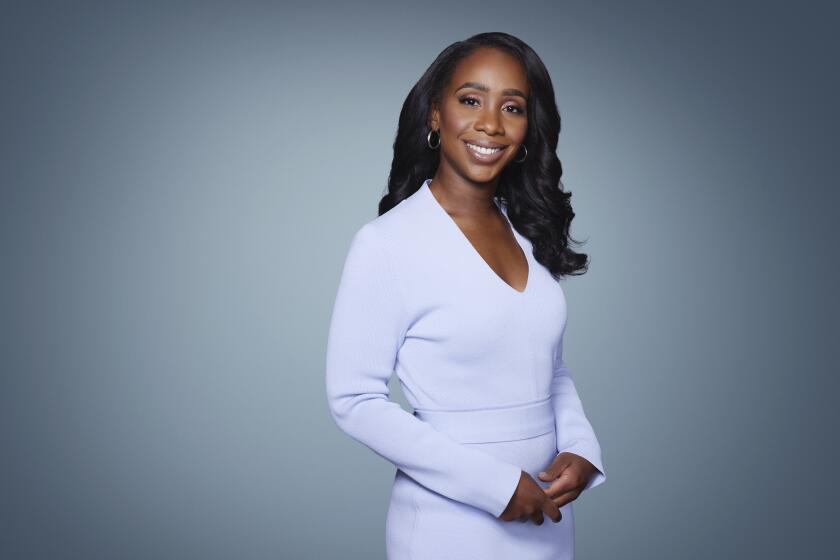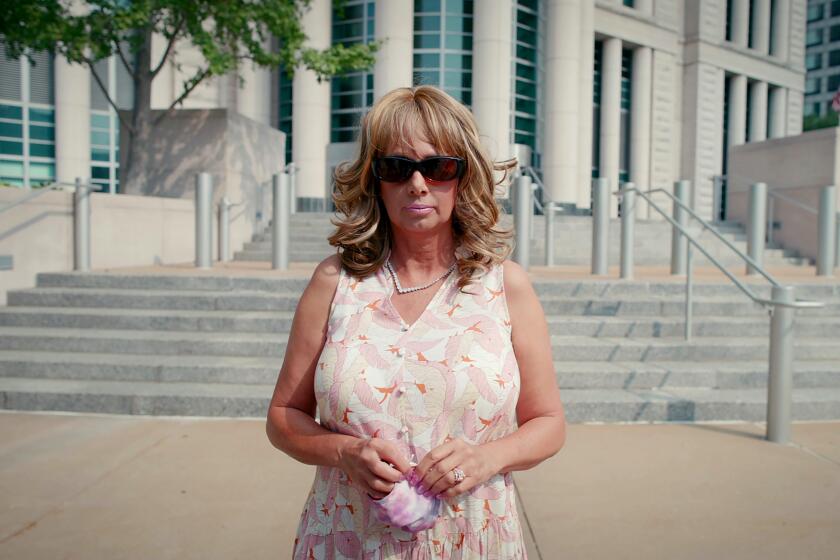Peter Sagal discusses ‘Wait, Wait ... Don’t Tell Me’s’ arrival on TV
“I got a phone call from a friend,” Peter Sagal told me recently, remembering a day in 1997, “who said, ‘I know these people who are putting together a new show on public radio. They’re looking for funny people who read a lot of newspapers, and I thought of you.’”
FOR THE RECORD:
Peter Sagal: An earlier version of the photo caption on this article about Peter Sagal and “Wait, Wait...Don’t Tell Me” misspelled Carl Kasell’s last name as Kassel.
That was “Wait, Wait ... Don’t Tell Me,” the popular NPR current-events comedy panel show Sagal has hosted for nearly 14 years. It will come to television Friday, when BBC America airs a special Anglo-American video edition subtitled “A Royal Pain in the News.” Regular contributors Paula Poundstone and Alonzo Bodden and “official judge and scorekeeper” Carl Kasell will appear; guests Nick Hancock (a U.K. game-show host) and author Neil Gaiman (“Coraline”) bring the Britishness.
Is this the first time you’ve tried to translate the show to television?
In 2008, CBS came to us with real enthusiasm, and we taped a pilot at the Wilshire Theatre [now Saban Theatre] in Beverly Hills. And that never saw the light of day. We built this huge set, we had a huge TV screen to show images to the audience, but we lost the intimacy. When we do our show we’re not very far from each other physically, and we sound, I think, on the radio, like we’re just hanging around a table. Basically all it is is a bunch of guys who amuse each other trying to do just that — that’s our show. And with the CBS pilot, we kind of ruined that by blowing it up: I was 20 feet away from the panel, I was talking to our guests on a huge screen way in the distance, and we lost that connection and that sense of spontaneity that is part of our appeal.
Radio feels more intimate than television.
This is something I think about a lot. When we started doing live shows we’d go to auditoriums around the country and people would come up and talk to me with real — I won’t say presumption — friendliness, like they knew me. But radio is a very intimate medium. Where do you listen to radio? In your car, when you’re otherwise alone; in your kitchen or in your garage, when you’re doing tasks or chores. We’re voices in people’s heads as they go about their day. As opposed to TV, which is this glowing box in the corner, and there’s literally this wall of glass between you and the people you’re addressing.
Your sort of show has a long history in the medium.
Not only is there a history, but it was the history. Some of the earliest radio shows were quiz shows. We have two models for what we do, two ancestral icons. The first is “Information, Please,” which was the first and greatest, I think, of the witty panel shows. Everything that came after that, like “To Tell the Truth” and even “Hollywood Squares,” derives from “Information, Please” — Clifton Fadiman, Oscar Levant, those guys. And the other model of course is “You Bet Your Life,” with Groucho Marx. And I mean to make no untoward comparisons between my talents and Groucho’s, but the way that “You Bet Your Life” was a quiz show in name only, that the reason to watch was to watch Groucho be funny with people, that’s certainly part of our DNA as well.
Does the program have a political bias? Does it lean naturally to the left or the right?
We try very hard not to. The political wars these days are like World War II — everywhere is a battlefield. And I really, really want our show to be a neutral ground, a place where people can listen and, no matter what they believe, enjoy it and not feel we’re slamming one side to benefit the other. That said, we always feel that the funniest stuff is the stuff we find funny; and it’s distressing to me that we’ve gotten to where, if I point out that Herman Cain is ridiculous or Sarah Palin clearly doesn’t know what she’s talking about, I am therefore a liberal. No. I just don’t think Sarah Palin knows what she’s talking about. We do try to police ourselves. If we’re going to say something to make fun of a person, we’ll stop and ask if we’d make fun of that person if the letter after their name were different, if it were a D instead of an R or an R instead of a D. And if the answer is no, we don’t do the material. And the people who accuse us of liberal bias, I would ask them to listen either to our coverage of Anthony Weiner this spring or to our coverage of President Clinton the first two entire years of our show.
Does the world always give you enough to talk about?
I’ve got to tell you, the last few years we really have not been starving for material. The only weeks we have trouble are when there’s a huge disaster in the news, like the Haiti earthquake or the tsunami in Japan, because that’s not material we’re going to make fun of; that’s not material that anybody wants us to make fun of. And yet it also affects the whole ecology of the news: Those stories become the dominant stories, and the stuff that would be Page 1 gets knocked down to the inner pages, while the stuff that would be in the inner pages — all the trivial and weird stuff, where we really make our living — disappears. But as long as people are out there, doing stuff, they will do stupid things.
More to Read
The biggest entertainment stories
Get our big stories about Hollywood, film, television, music, arts, culture and more right in your inbox as soon as they publish.
You may occasionally receive promotional content from the Los Angeles Times.











